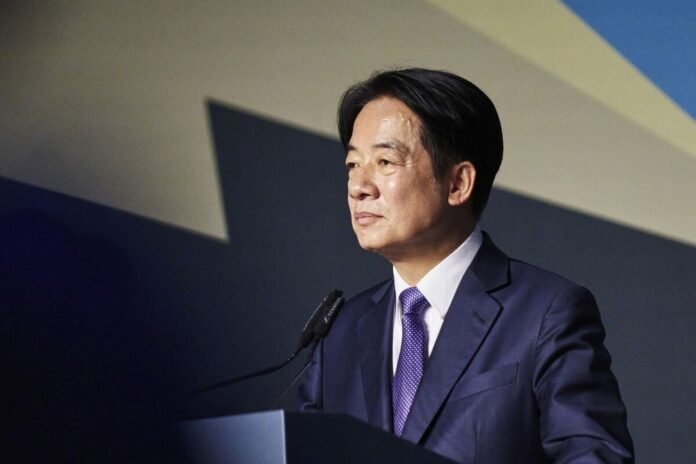TAIPEI, Taiwan — Taiwan’s President Lai Ching-te said on Wednesday that China is trying to subjugate Taiwan, but stressed that the independent island nation won’t give in to pressure.
As it has often declared, China would never give up using force to annex Taiwan and considers it to be part of its territory.
China’s political and military pressure on Taiwan’s government has increased in recent years. As China conducted military drills over the island three days after Lai took office, this became clear.
“The annexation of Taiwan is a national policy of the People’s Republic of China,” Lai declared during a press conference to commemorate his first month in office.
According to him, “Besides military force, they have increasingly used non-traditional methods of coercion to try to force Taiwan into submission.”
“However, Taiwan will not bow to the pressure. The people of Taiwan will resolutely defend national sovereignty and uphold the democratic and free constitutional way of life,” Lai stated.
His words reaffirmed Taiwan’s intention to “avoid conflict.”
“The people of Taiwan love peace and are kind to others, but peace must be backed by strength. True peace is not just empty words; peace guaranteed by strength is real peace,” he stated.
Days after Lai took office on May 20, China referred to the war simulations as “punishment” for his inaugural address, which Beijing had branded as a “confession of Taiwan independence.”
China said the three-day Joint Sword-2024A exercises, in which it surrounded Taiwan with warships, fighter jets, and coast guard vessels, were an attempt to see how well it might take over the island.
Beijing pledged during the exercises to keep up military pressure “as long as ‘Taiwan independence’ provocations persist.”
Taiwan has its own government, armed forces, and currency. It is divided from China by a small strait.
Regarded by China as a “dangerous separatist,” Lai has adopted the same rhetoric as Tsai Ing-wen, his predecessor, claiming that Taiwan is “already independent” and does not require a formal declaration of independence.
China has not had formal talks with Taipei since 2016, and Lai and Tsai’s Democratic Progressive Party have traditionally supported Taiwanese sovereignty.
Lai, who was elected in January, has demonstrated a desire to pick up the conversation with China. In his inaugural speech in May, he called for both sides to advance their talks.
But China has appeared to ignore these advances, continuing to station bombers and navy ships all around the island almost every day. Although they don’t result in a full-scale conflict, these gray area strategies weaken Taiwan’s military.
Chinese coast guard ships have also been spotted on Taiwan’s outer islands in recent months, sometimes briefly crossing its restricted waters.




